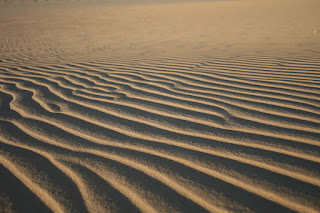For Rebecca
1. Instead of nature (blood) versus nurture (training), this is really about whole (polis) versus part (self). Man is both an individual and a member of mankind: what better analogy of this than the pre-born? The plot supports this theme through infighting, group political appeals to single persons, and the constant comparisons between Leto, Ghanima, Alia, and Paul—also, Paul and Farad'n, Idaho and Gurney, Paul and the Preacher, Gurney and Naima, et cetera.
2. This gets back to the rollicking surface plot of Dune: there are fights, prophecies, sandworm rides, on scene deceptions, almost seductions, et cetera. I find this helps me follow the more interesting parts of the book—when I can place the introspection in a specific time and place. It makes the decisions feel like they will have power and import—and they often do in this book. The adventure is not necessary for this, but it gives the reader a point of reference to which the more esoteric philosophical discussions can be pinned.
3. Alia's not terribly interesting anymore, like she was in Dune Messiah. Well, not until the end, when she comes back. Where her grandfather was just bad, there is a tragedy to Alia that allows her ending to be a sad event for me. Yes, it is Leto's triumph and the end of so many things, but that scared little four year old fighting off the pain to toss herself from her own tower is tragic.
4. I feel like this novel is overlong for what it covered—though I realize that this probably means that I missed something. It comes off like Herbert realized Dune Messiah was overly esoteric, so he consciously made this one more exoteric and longer. But at the same time, I feel the book is perfect for what it is: perfect length, amount of material, action, plot, and world building. This is difficult to reconcile. Yes, it is a bit long winded; but no, that does not detract. There, good enough for now. [My realization of the cause of this confusion took another 3 books, but I realized it after reading Chapterhouse: Dune.]
5. It is effective how the reader is lead in behind the curtain at times—we know what Leto is before the people he meets do. We know who is destroying the qanats and spreading the water, and we know this long before Alia does. This lets the reader indulge in a couple of "don't go in there" moments with the unknowing, but it also allows us to observe and appreciate how some characters act to deceive others, and that helps us know when the characters are deceiving others or being deceived without Herbert telling us directly.
6. Ultimately, this book is an excellent continuation of the series. It caps off a lot of the threads and stories throughout the first two books. Paul grabbed power too quickly in Dune, and it ruined him, the planet Dune, and the universe.Paul is a Davidian character while Leto is Solomonic. Leto comes in to pick up the threads, and solve the excesses caused by Paul's actions: Dune changing too rapidly, the necessary backlash to the jihad, the cult of personality he created going massively awry after he goes away, and the logical extension of prescient humanity and male Bene Geserit-ness—namely, taking the sand trout route, which also fulfills the importance of Dune as a planet.




No comments:
Post a Comment